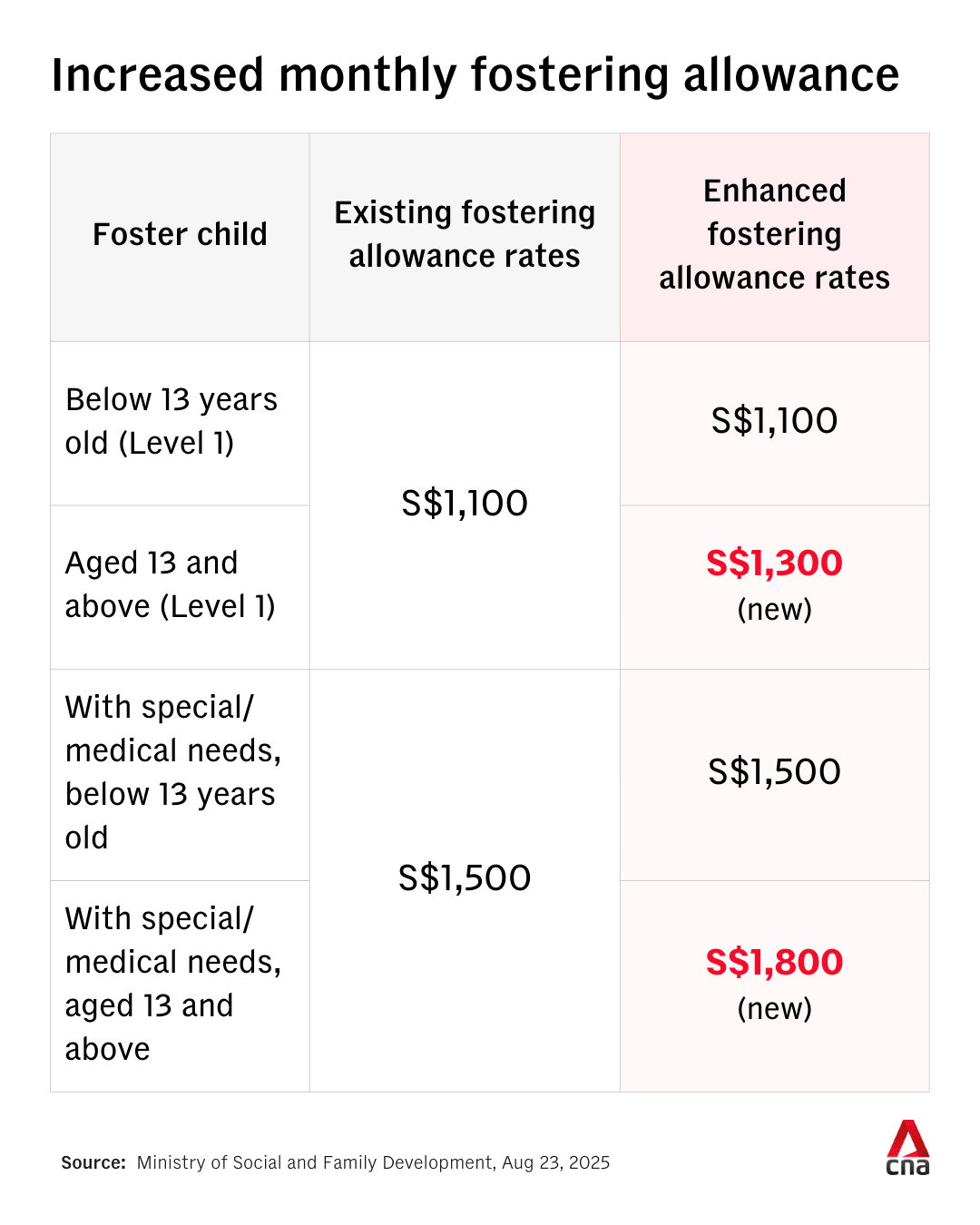MSF to raise fostering allowance in bid to attract more couples to foster teenagers; removes income, education criteria
The increase in monthly fostering allowances is expected to benefit about 130 teenagers and their foster parents.

Foster families will also continue to receive a comprehensive suite of government subsidies and support, said the Ministry of Social and Family Development. (Photo: iStock)

This audio is generated by an AI tool.
SINGAPORE: Foster parents caring for teenagers will begin receiving higher monthly allowances in November, as part of new measures to encourage more families to foster older children, the Ministry of Social and Family Development (MSF) announced on Saturday (Aug 23).
In addition, the minimum household income and educational requirements for fostering applicants have also been scrapped, the ministry said in a statement. This took effect in July last year.
Speaking at the annual Fostering Open House held at Suntec Singapore Convention and Exhibition Centre, Minister of State for Social and Family Development Goh Pei Ming said the expanded eligibility criteria are aimed at encouraging more couples “to step forward and make a lasting difference”.
“While many foster parents naturally gravitate towards caring for younger children, teenagers also benefit deeply from the care and consistency of a family environment.”
To this end, foster parents caring for teenagers aged 13 and above will receive S$1,300 (US$1,008) a month, up from S$1,100 currently. Those caring for teenagers aged 13 and above who have special or medical needs will receive S$1,800, an increase from S$1,500.

The fostering allowance will cease when the youth turns 21, or enters full-time employment or national service. It also ends if the youth terminates or completes their studies.
The move is expected to benefit about 130 teenagers and their foster parents.
As of December 2024, there were 530 foster children and 633 foster families. About three in five of teenagers in out-of-home care were in residential care, while only one in five were in foster care. The remaining were looked after by a relative.
“We recognise the cost of caring for teenagers is often higher than for younger children, from food and clothing to school supplies and recreational activities. The increased allowance aims to help defray these additional expenses and ease the caregiving journey,” MSF said in a statement.
The ministry added that foster families will also continue to receive a comprehensive suite of government subsidies and support, including services that promote the child’s well-being, development, and integration into family and community life.
WIDER FOSTERING ELIGIBILITY
On its decision to scrap the minimum household income and educational requirements, MSF said it hopes the expansion of the eligibility criteria would encourage more couples “to open their homes to children in need”.
“Our experience with fostering has shown us that the ability to provide a safe, stable and nurturing home is not determined by income or academic qualifications alone,” the ministry said.
Prior to July 2024, MSF required applicants to have attained secondary school education, as well as a minimum monthly household income of S$2,000 and a per capita income of at least S$700.
With the change, applicants will still need to undergo a holistic household assessment to ensure they can provide the care and stability that foster children need.
Couples need to be “financially stable and medically fit to care for children”, according to the updated eligibility criteria.
Applicants interested in becoming foster parents must be married and apply together as a couple, and be at least 25 years old.
They must also commit to providing a “child-safe and nurturing home environment” for the children in their care. This includes respectful caregiving practices and refraining from the use of physical punishment, such as caning or hitting.
Those assessed to be suitable will be supported through structured training, fostering allowances and casework guidance to equip them with the skills and resources necessary to provide a nurturing home environment.
















